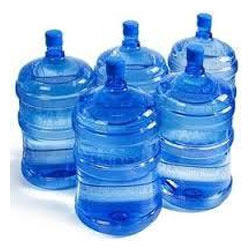Cholera-inducing bacteria found in jar, tap water in Kathmandu, nine cholera patients confirmed so far

Mahima Devkota / Kathmandu, June 25: Cholera-inducing bacteria, Escherichia coli (E. coli), and fecal Coliforms have been found in three areas of the Kathmandu Valley.
The water samples were taken from the nine places in the valley following the detection of the first cholera case inside the valley.
According to Basanta Adhikari, Chief of the Kathmandu Health Office, cholera-inducing bacteria have been detected in three of the nine places. The disease was detected in two sisters aged 18 and 23 years from Kathmandu Metropolitan City-28, Bagbazar. After which, water samples were taken from residents, and the test conducted by the National Public Health Laboratory found the result positive for fecal bacteria and Escherichia coli (E. coli).
The samples were also taken from the stored water, which in turn was from the (pipe) tap water.
Likewise, Coliform bacteria was detected in water samples taken from jar water in the Dillibazar area. Furthermore, out of the 36 samples tested by the Buddhanilkantha Municipality, Coliform bacteria was detected in 24 water samples.
Eight cases of cholera within a week
Dr Chuman Lal Das, Director of the Epidemiology and Disease Control Division (EDCD), said that with three more people infected with cholera in two days, the cholera-infected cases of the bacterial disease in Kathmandu Valley since Sunday have reached eight.
Director Das, said, “ Eight cases of cholera have been confirmed so far in Patan Institute of Health Sciences, Vayodha Hospital and Sukraraj Tropical & Infectious Disease Hospital. Six from Sukraraj Tropical & Infectious Disease Hospital and one each in Patan Institute of Health Sciences, Vayodha Hospital.”
The deadly disease has been found in diarrheal patients from Bagbazar, Dillibazar, Balaju, Sanepa, and Kapan areas, raising the risk of spreading all over the capital.
Nawaraj Gautam, Information Officer at Sukraraj Tropical & Infectious Disease Hospital, said that six of the eight cholera patients are from Teku Hospital, of which, three have returned home and the other three are receiving treatment at the general ward.
He said that nine cases of diarrhea on average are being observed a day following the first detected case.
According to the Ministry of Health and Population (MoHP), for every 1,000 children under five years of age, 349 suffer from diarrheal diseases. The data is from the previous fiscal year.
Health experts warn of cholera spread in valley
Cholera is a water-borne disease, which is found in contaminated food and water, and intake of that contaminated food and water induces vibrio cholera, a bacteria that causes cholera. Symptoms of cholera include excessive diarrhea, vomiting, constriction of the stomach, thirst, and weakness in muscles.
“It is a highly infectious disease that causes severe diarrhea and vomiting, which causes dehydration and can lead to death within a few hours if left untreated,” said Dr Sher Bahadur Pun, chief of the Clinical Research Unit at Sukraraj Tropical and Infectious Disease Hospital in Teku, “Cholera may cause serious infections in one of ten infected people. The death rate can reach up to 50 percent if left unattended.”
He said, ‘Cholera has been detected in major populated areas of Kathmandu, which risks the spread of infection. In addition, many of the infected people might not even be aware of the infection, therefore, can spread to others.
Doctors have suggested paying attention to hygiene and eating habits, and intake of clean food and water is the key to avoiding diarrhea and cholera.
Saying that contaminated water is seen as the source of causing cholera, and other water-borne diseases Dr. Sameer Kumar Adhikari, Assistant Spokesperson at the Ministry of Health and Population (MoHP), has appealed to use clean water, drink water after boiling it, intake properly washed and cooked food.
He stressed that not only the government but denizens must be responsible by sticking to quality food and water. Also, timely checkups and hospitalization to minimize further cases.
Multi-sectorial efforts to contain cholera
Chief of the Kathmandu Health Office said that, “There is a need for the multispectral approach to contain the cholera spread in the valley. We have started monitoring water and keeping in check cholera patients.
The Department of Food Technology and Quality Control (DFTQC) will start monitoring the water quality of jar and bottled water. Along with this, we have suggested the Kathmandu Upatyaka Khanepani Limited increase the use of chlorine in water pipelines.”
He said, “Awareness of the infection helps in prevention and cure, therefore, There is an emphasis on mass awareness about the infection, along with this female health assistants are deployed to ensure that each household is aware of the infection and also, minimizing the issue of late detection of the infection.”
